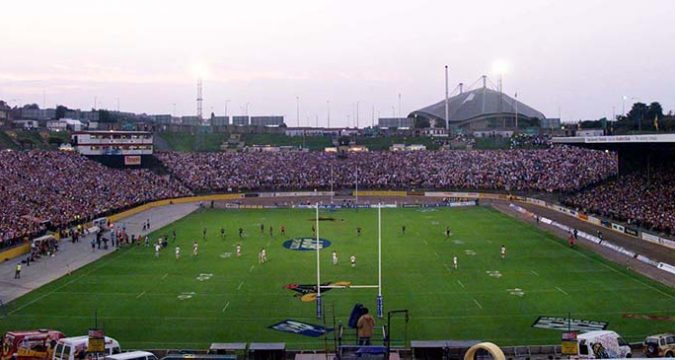 Jarrod Sammut's 77th-minute field goal against Bradford Bulls earlier this month earned Barrow Raiders their first win at Odsal in more than 59 years.
But technically speaking, the 29-0 victory back on November 23, 1963 never happened.
For the meeting with the then-Lancashire side (Cumbria didn't come into existence until 1974), was among 16
Jarrod Sammut's 77th-minute field goal against Bradford Bulls earlier this month earned Barrow Raiders their first win at Odsal in more than 59 years.
But technically speaking, the 29-0 victory back on November 23, 1963 never happened.
For the meeting with the then-Lancashire side (Cumbria didn't come into existence until 1974), was among 16 Championship Focus: Bradford’s rise from the ashes
 Jarrod Sammut's 77th-minute field goal against Bradford Bulls earlier this month earned Barrow Raiders their first win at Odsal in more than 59 years.
But technically speaking, the 29-0 victory back on November 23, 1963 never happened.
For the meeting with the then-Lancashire side (Cumbria didn't come into existence until 1974), was among 16
Jarrod Sammut's 77th-minute field goal against Bradford Bulls earlier this month earned Barrow Raiders their first win at Odsal in more than 59 years.
But technically speaking, the 29-0 victory back on November 23, 1963 never happened.
For the meeting with the then-Lancashire side (Cumbria didn't come into existence until 1974), was among 16 